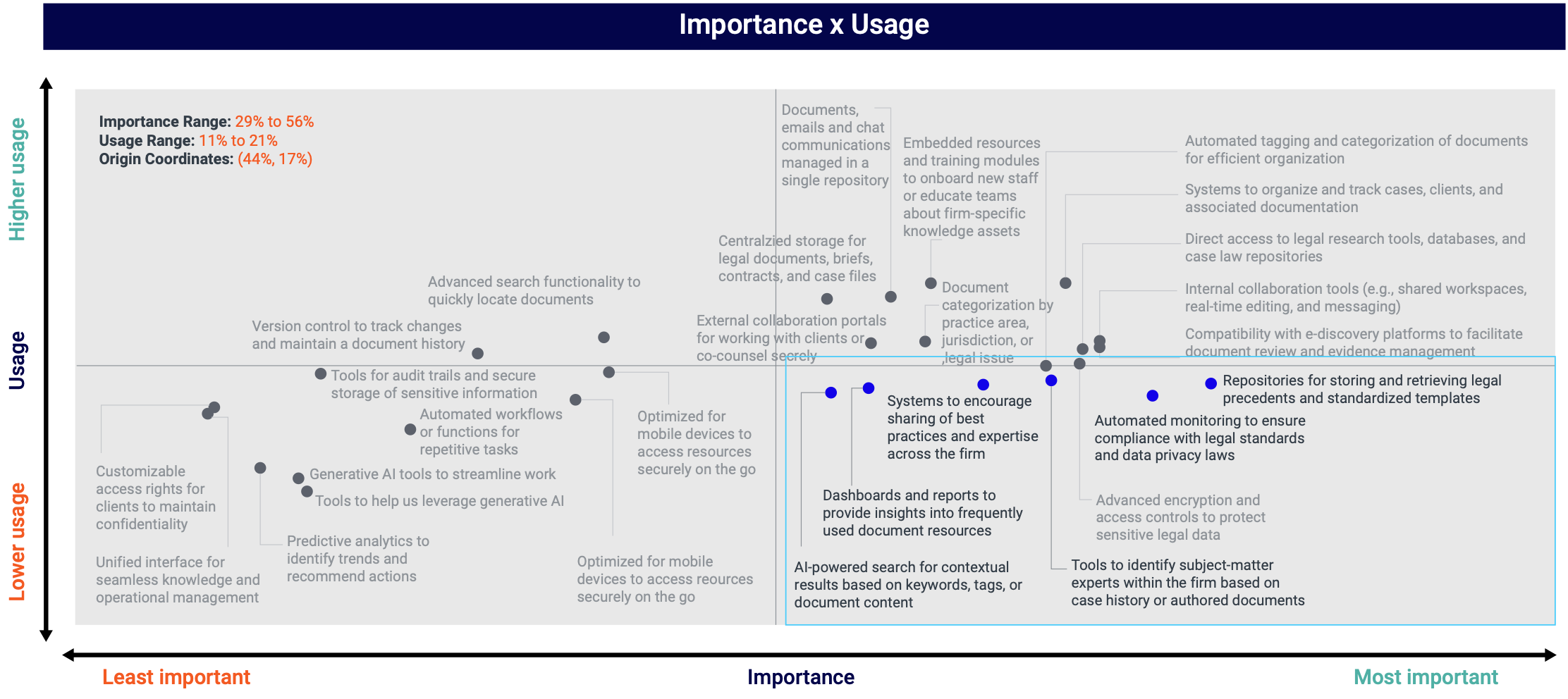Law Firms Keep Buying Amazing Tech… Lawyers Keep Not Using It
Before rushing to AI, it's time to get the rest of the technology side of the house in order. The post Law Firms Keep Buying Amazing Tech… Lawyers Keep Not Using It appeared first on Above the Law.


The tech people are trying to make lawyering easier — or at least more profitable and secure — but their worst enemy remains the lawyers they aim to help.
“Purchase, install, ignore” remains a disturbingly common pattern for law firms. It’s not universal by any means. Some technology manages to strike a chord with attorneys and gets inserted into the workflow, but many products fail to break through with the masses to the frustration of tech professionals. And unfortunately the tech that manages to break through is often the least essential. So as firms chase the generative AI dragon, they’d do well to get their fundamental tech issues sorted first.
“Ground your legal AI strategy firmly in the basics” declares a new report from iManage. Hopefully the AI-curious will take a look, because the takeaway lurking under the glitzy “AI” in the headline is a plea for better adoption across the board. Especially for the more important tools that currently collect a lot of dust across the industry.
This puts us on notice that, as we evaluate the potential of AI capabilities, it is equally critical for legal leaders to assess an organization’s foundational technology stack, with a keen eye on usage. This assessment should identify any gaps, determine the steps needed to fill them, and prioritize firm-wide adoption of current capabilities to be certain that any future investment — be it in AI or wherever else the future leads — is maximally effective.
There’s a lot going on in this chart, but the blue dots representing important tasks hovering below the mid-line on usage is the big deal:

The paradox is real:
The contradiction that foundational tools are considered essential yet adoption remains low emphasizes the need — or opportunity — for law firms to make their technology investments pay better dividends. According to the research, there is a gap between the capabilities legal users deem important and their actual technology usage. Organization leaders can achieve the greatest immediate impact by facilitating stronger adoption to fill this gap.
There are a lot of reasons why we’ve reached this point. Some systems are slow, clunky, confusing, or so locked down with security protocols that users would rather email themselves a contract than try to retrieve it from a vault of digital despair. Effective document management is a prerequisite for successful AI deployment. Unfortunately, many current systems are about as user-friendly as a tax code written in Wingdings.
Low DMS adoption can quickly produce data silos, compliance failures, and unnecessary exposure to security risks. But every extra step erodes efficiency. Scrutinized by billable hours and write-offs, lawyers need solutions that reduce friction streamline workflow, and alleviate security concerns to promote working within the system rather than outside it.
Moreover, as firms look to add generative AI to their toolkit and skillsets, strong document management becomes all the more critical. AI-driven insights depend on clean, relevant, and accurate data.
So maybe the next time your firm considers a big spend on AI tools, ask a simpler question first: can your team use the tech you already have? Because if the answer is “no,” you have deeper problems.
In other news, I now know how to pick a Master 140 series lock.
Joe Patrice is a senior editor at Above the Law and co-host of Thinking Like A Lawyer. Feel free to email any tips, questions, or comments. Follow him on Twitter or Bluesky if you’re interested in law, politics, and a healthy dose of college sports news. Joe also serves as a Managing Director at RPN Executive Search.
The post Law Firms Keep Buying Amazing Tech… Lawyers Keep Not Using It appeared first on Above the Law.






















































































































































